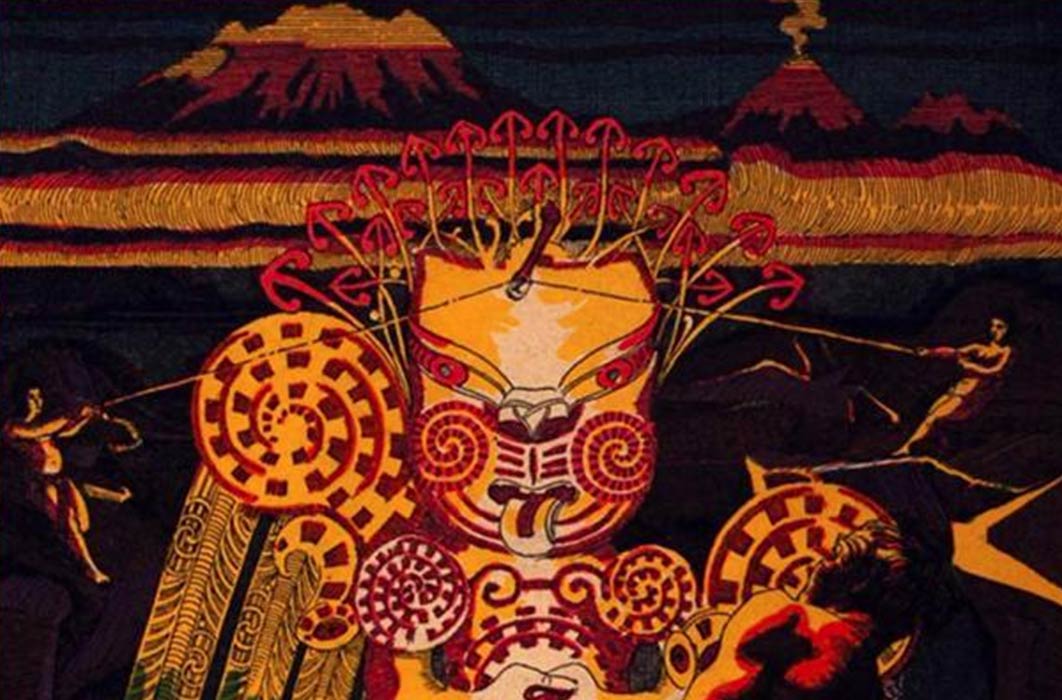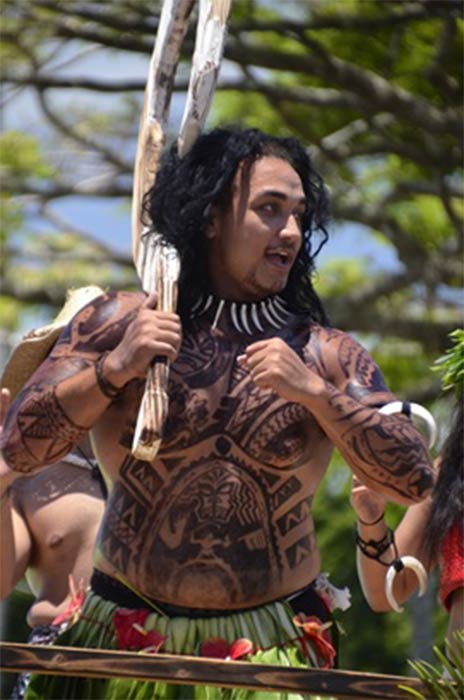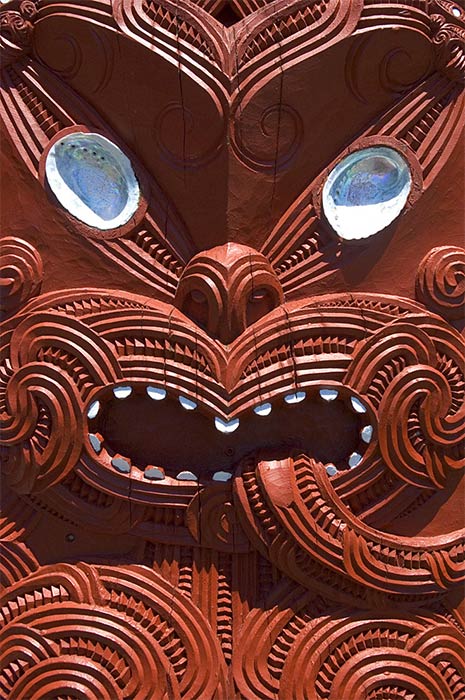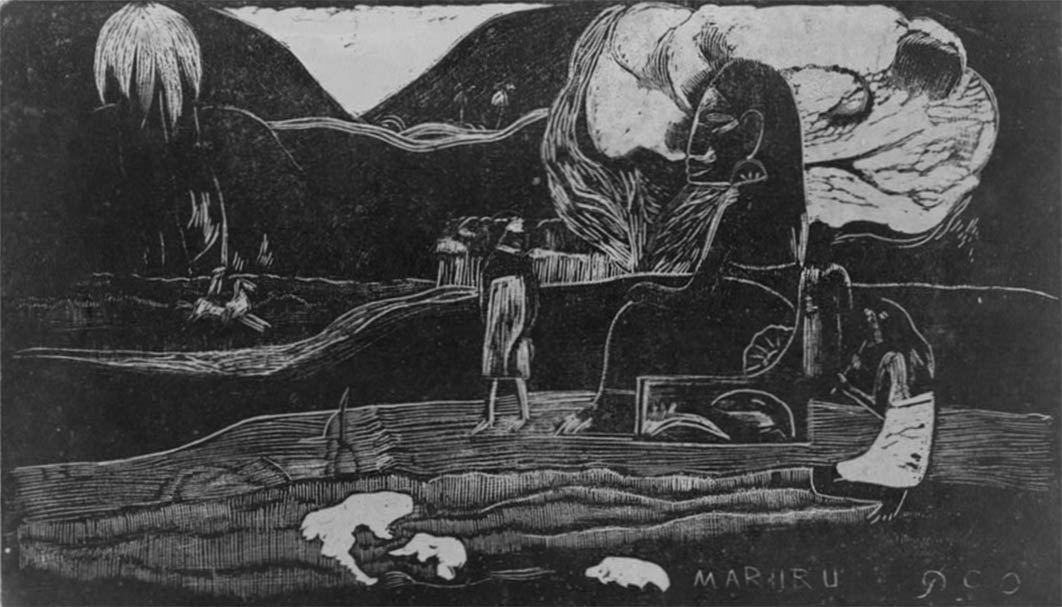
Māui, The Fun-Loving Trickster Of Polynesian Mythology
An archetypal character who appears in the myths of many different cultures, the Trickster gleefully crosses and breaks physical and societal laws of both humans and gods, destroying norms, while openly challenging and ridiculing authority. As the messenger of the gods in Greek mythology, Hermes plays this role as the patron of thieves and inventor of lies. Norse mythology has Loki, a shapeshifter who could switch freely between genders and gives birth to Odin’s eight-legged horse when he takes the form of a mare. In Polynesian mythology it is Māui, who is not only the trickster but also a great cultural hero.

Participant of the Merrie Monarch Parade in Hilo performs as demigod Māui ( Thomas Tunsch / CC BY-SA 4.0)
Tales of Māui’s exploits and adventures are told throughout most of Polynesia. In Maori mythology, Māui possesses superhuman strength and is capable of shapeshifting into animals. Perhaps in keeping with his shapeshifting abilities, depictions of Māui varies from one nation to another, from being a handsome young man to being a wise old wandering priest. However, although Maui was said to be a real rascal many of his deeds were, intentionally or not, done to better the lives of mankind. For example, in Hawaiian mythology, Māui heard the birds sing and noted their beautiful appearance as they flitted from tree to tree, barely visible among the leaves and flowers. But Māui was the only one who could see them, as humans could only hear their beautiful, mysterious songs without knowing from whence it sprung. Māui pitied his human friends and made the birds visible to the human eyes. Ever since, mankind has been able to both hear the songs and see the beauty of the birds. Other exploits of Māui common to most Polynesian traditions are stealing fire for humans from the Underworld, capturing the sun to lengthen the days, and his ominous baptism that caused humans to experience death.

Tūmatauenga, god of war, is the ancestor of humankind. (CC BY-SA 2.5)
Maui Finds His Siblings
Tūmatauenga (Tū of the angry face) is the god of war, hunting, food cultivation, fishing and cooking in Maori mythology. As his descendants increased and multiplied, they were all immortal until Māui changed this in his effort to get acquainted with his father, Makeatutara. Makeatutara, the guardian of the Underworld, was married to Taranga. They had four sons and one daughter before Māui was born. Māui was born prematurely and his mother, thinking he was stillborn, cast him into the sea wrapped in a tress of hair from her tikitiki (topknot). The waves of the ocean shaped him into a living, healthy baby. Ocean spirits found the now crying child and wrapped him in seaweed and jellyfish. It was then that Māui’s own grandfather Tama-nui-ki-te-Rangi found him on the beach and took him home to nourish. Maori monikers for Maui reflect the condition of his birth as he is known as Māui-tikitiki (Māui the top-knot), Māui-tikitiki-a-Taranga (Māui the top-knot of Taranga) or Māui-pōtiki (Māui the last born).

Mararu: Offerings of gratitude to the goddess Hina. Woodcut by Paul Gauguin (1894) (Public Domain)
When Māui was old enough, he travelled to his family's home and met his four brothers, Māui-Mua (Māui the Firstborn) Māui-Roto (Māui of the Inside), Māui-Taha (Māui to the Side), Māui-Waho (Māui to the Outside) and his sister Hina. Although the brothers were wary of the newcomer at first, later that evening Māui joined his family gathering when they danced and were being merry. He secretly crept in and sat down behind his brothers. Soon his mother Taranga called the children and found the strange child. She did not recognize her last-born son at first and tried to chase him out of the house. However, when Māui proved himself to be her son, he was happily acknowledged and reunited with his family.





